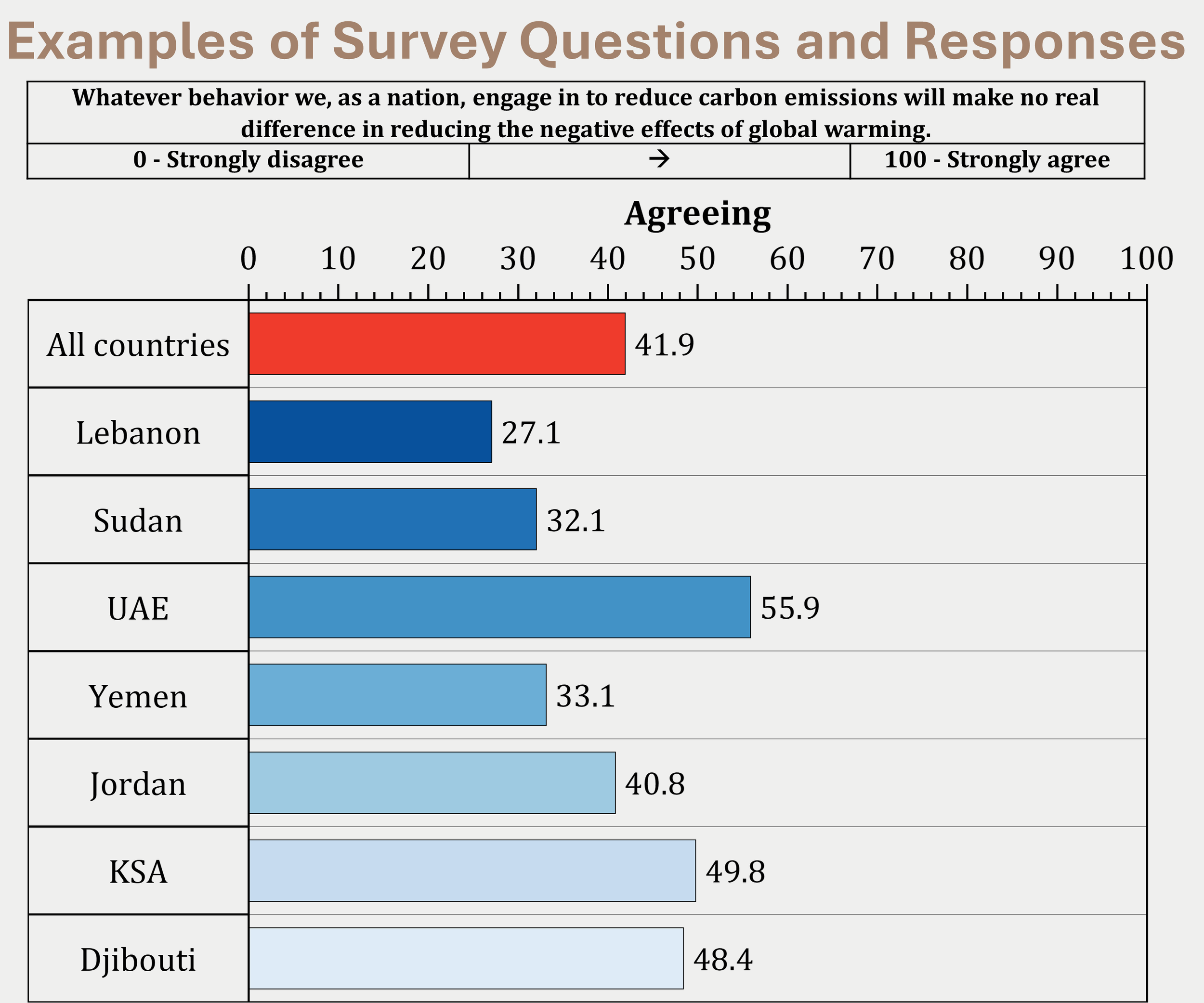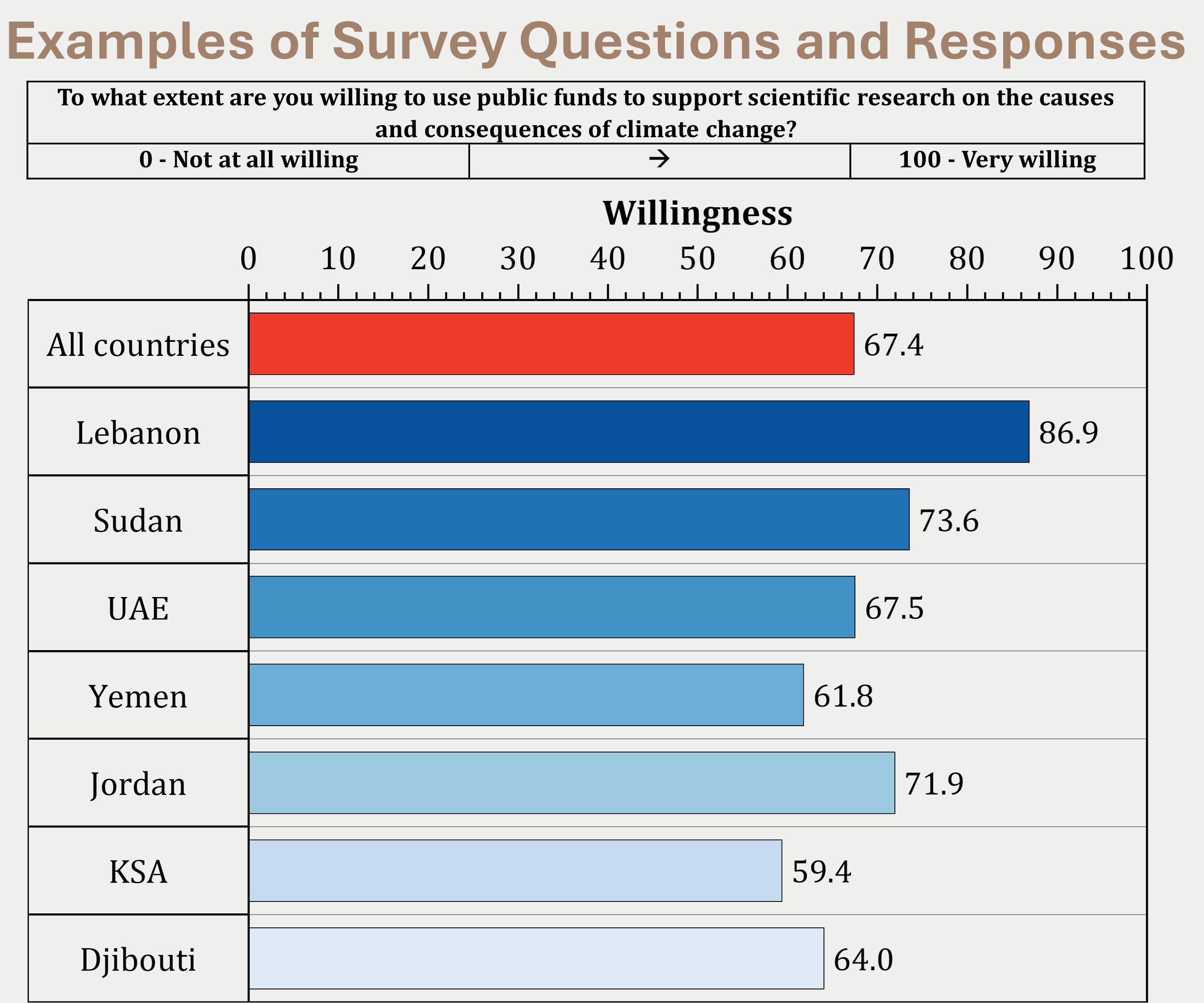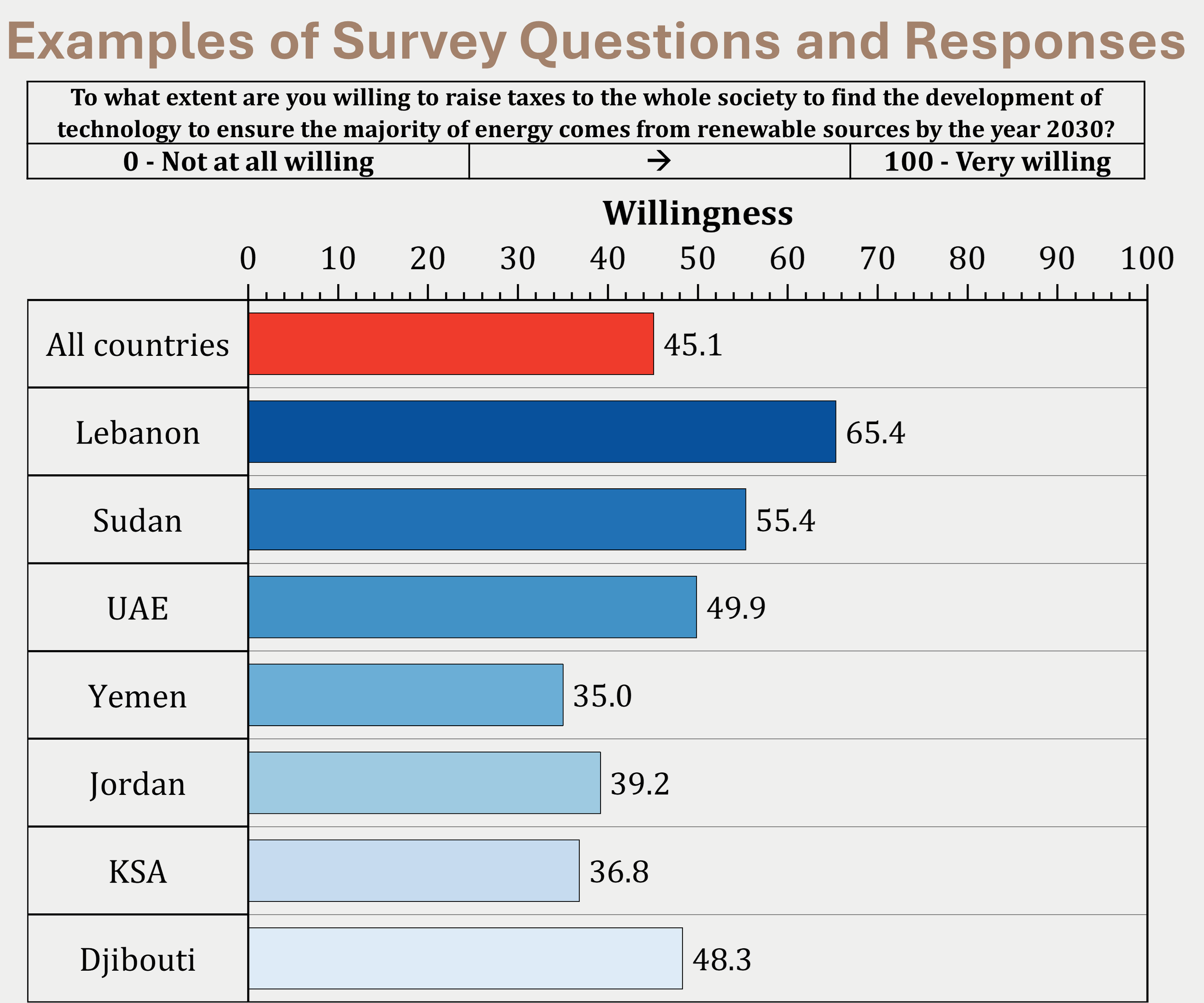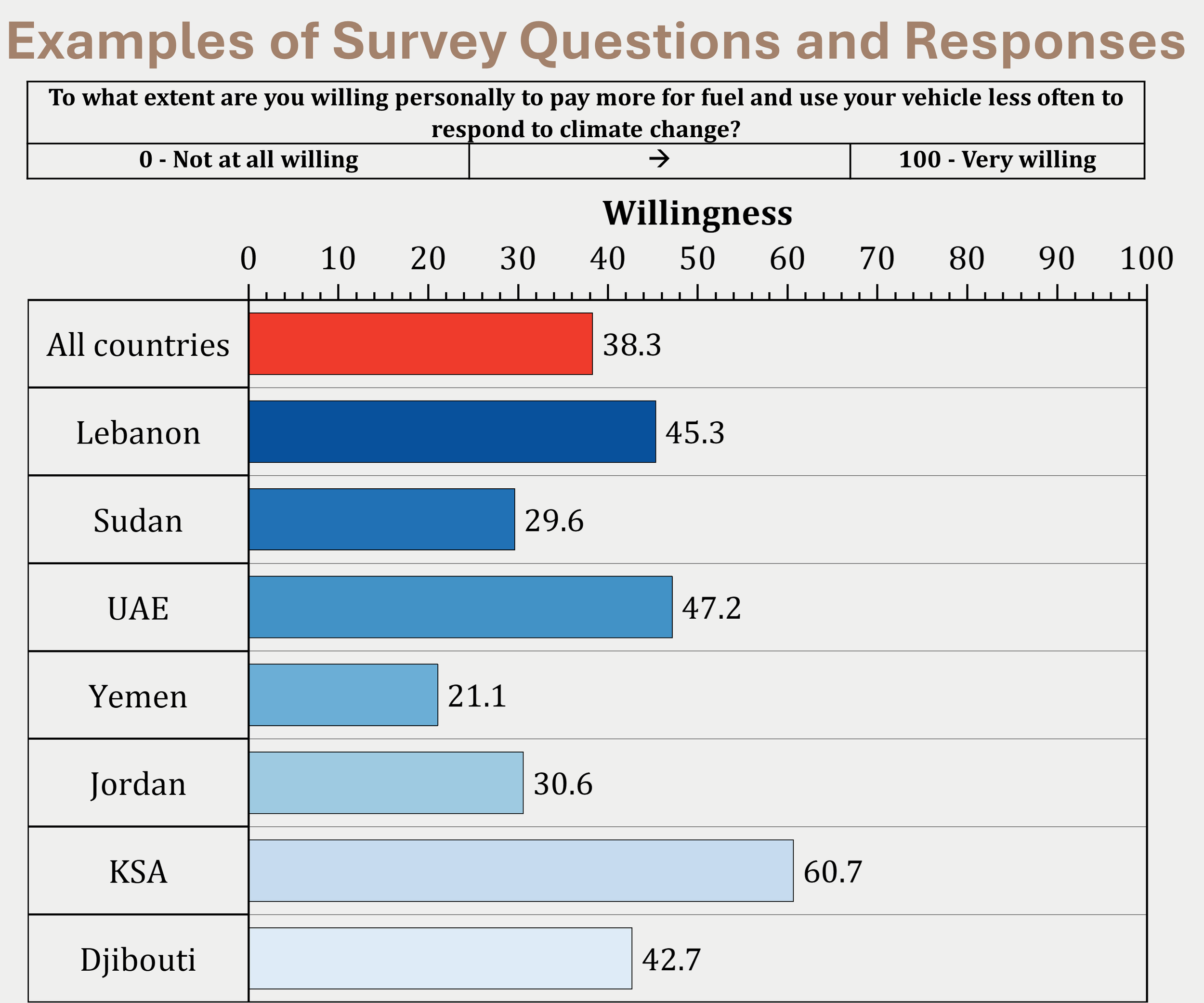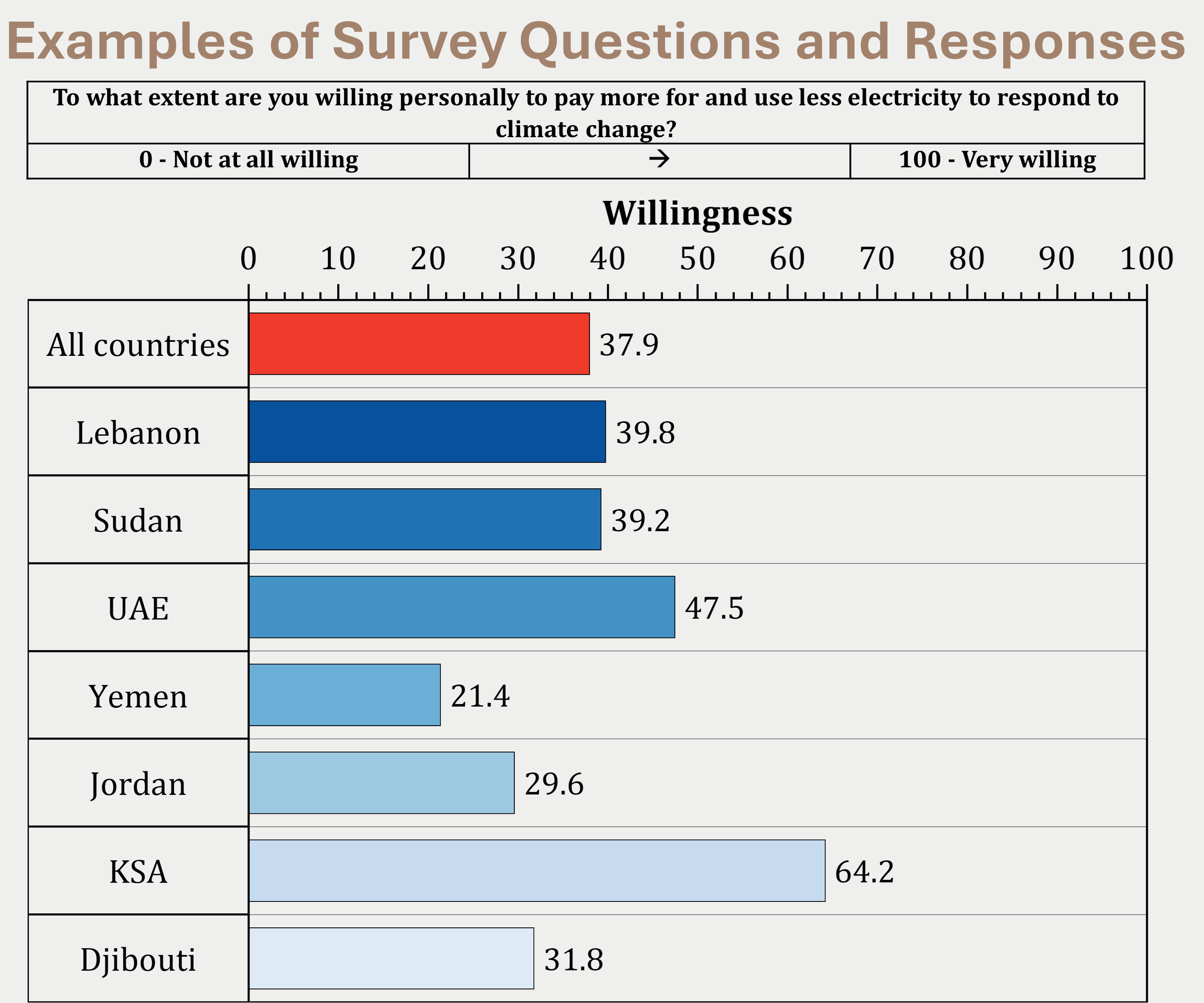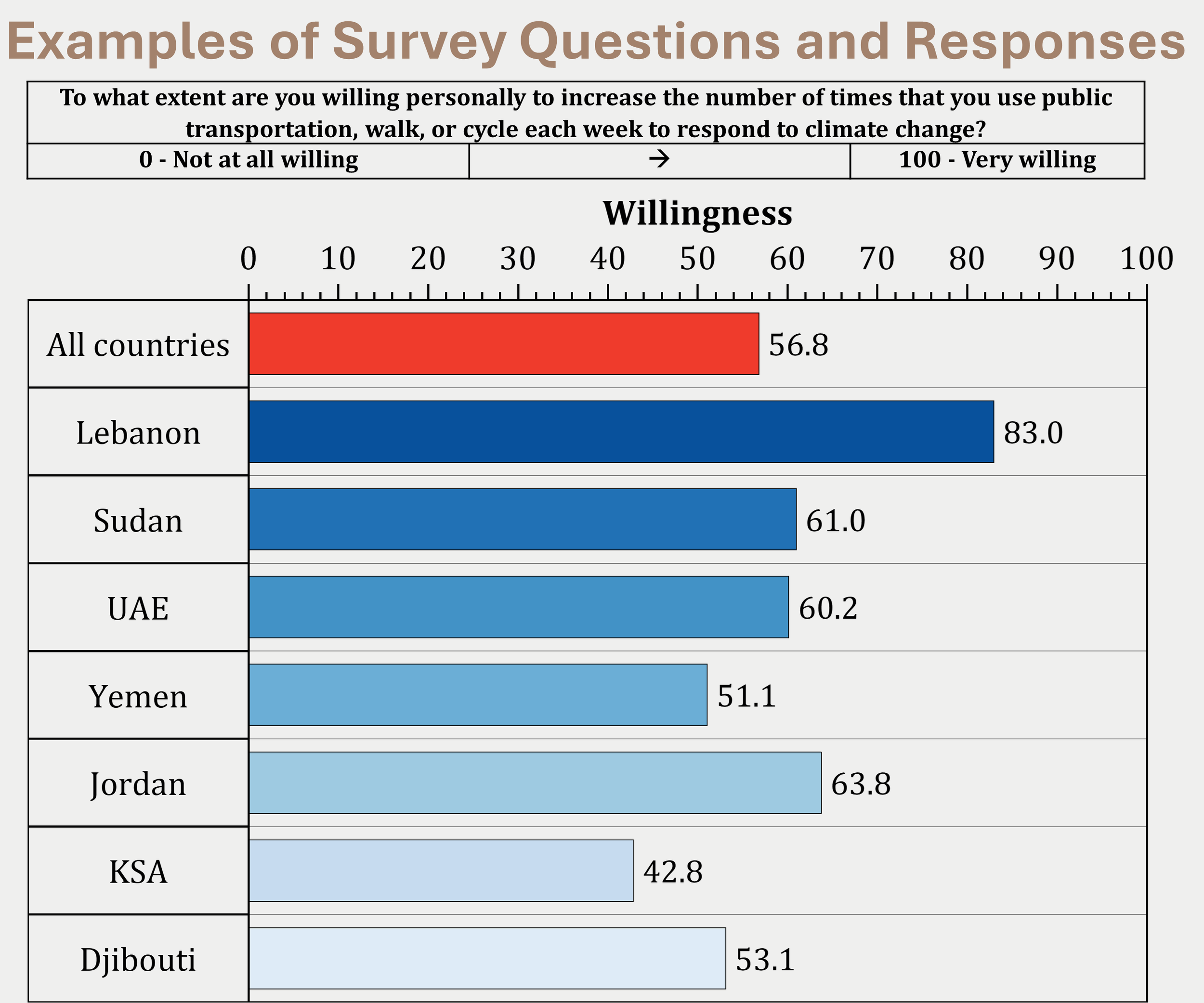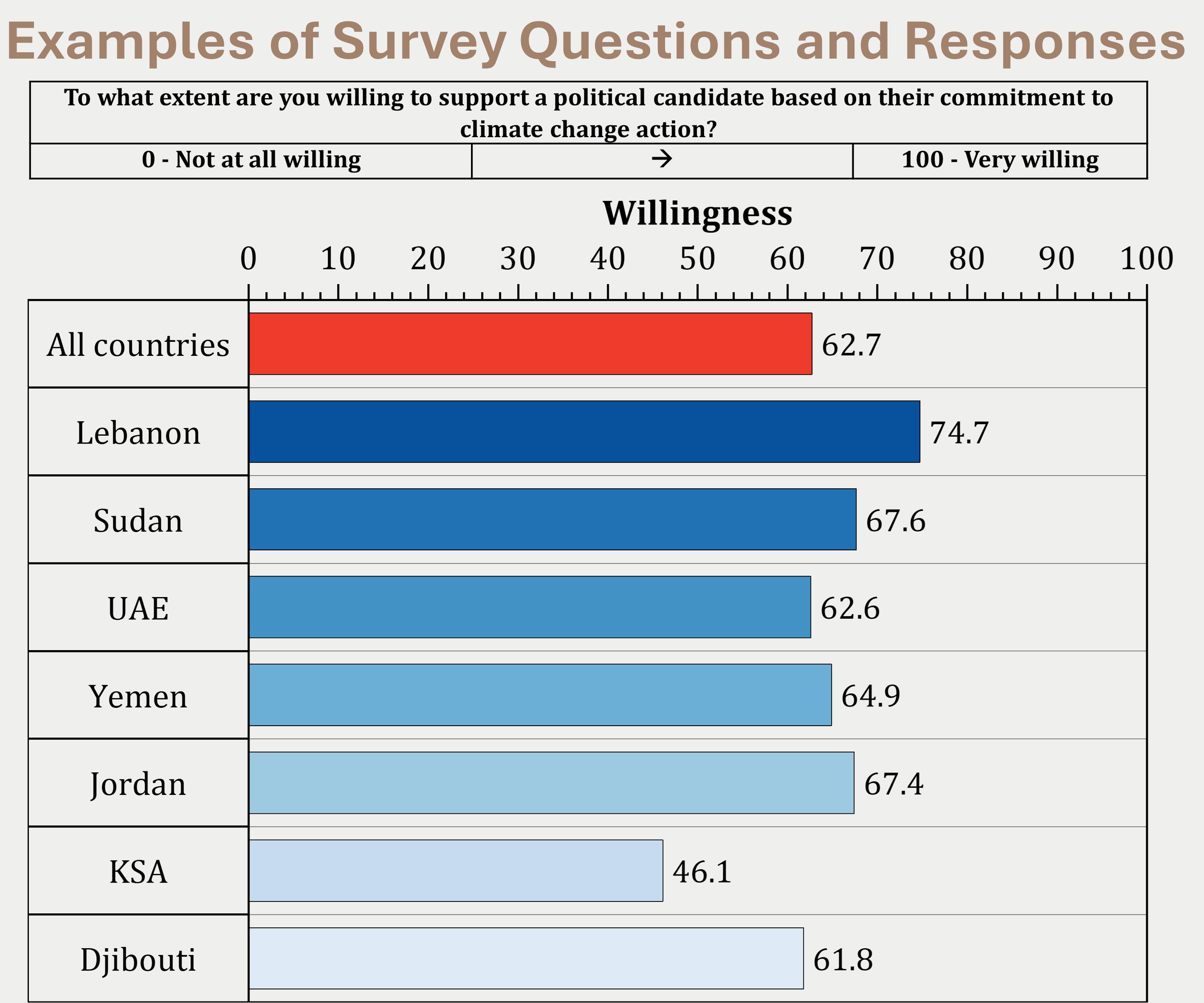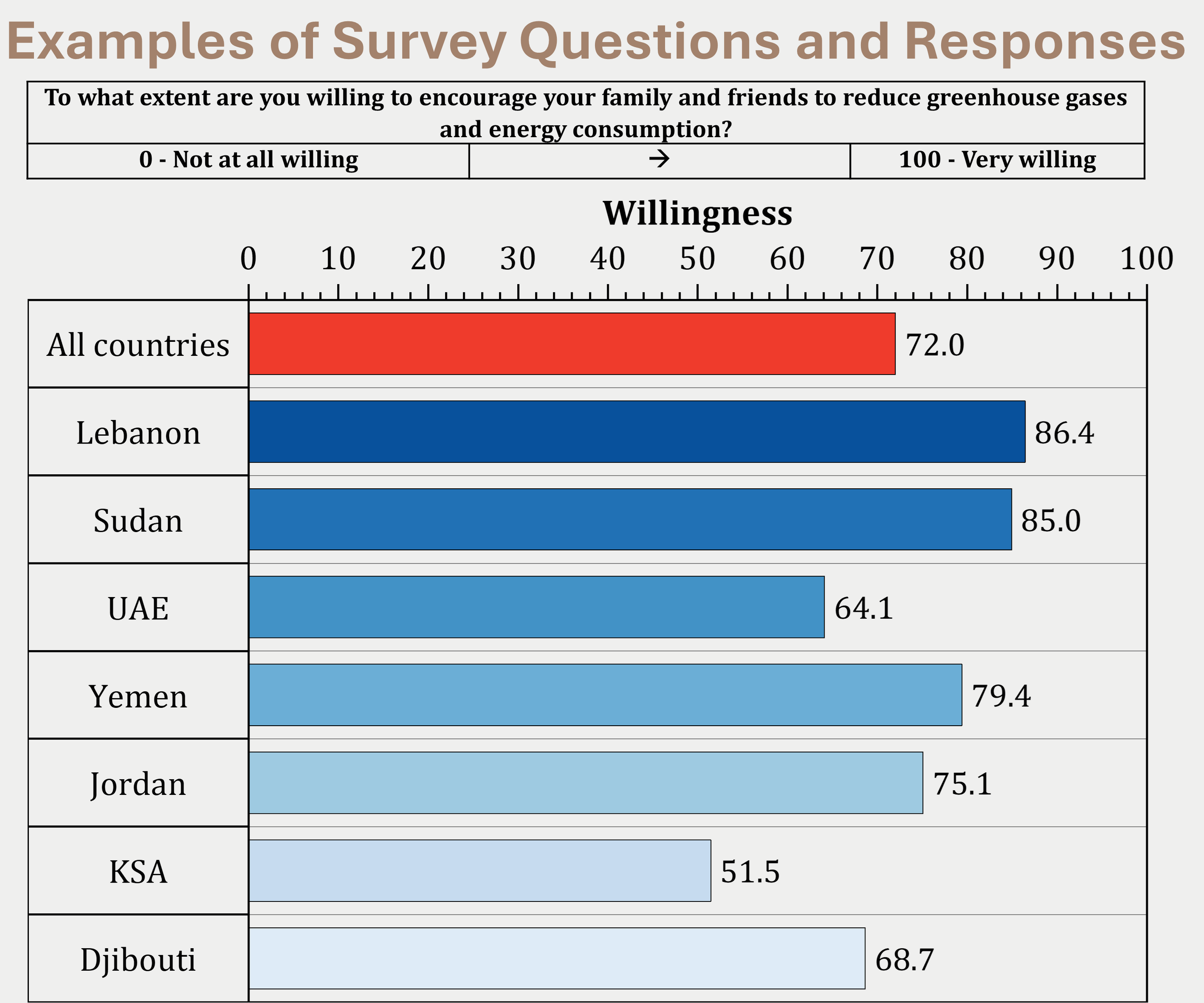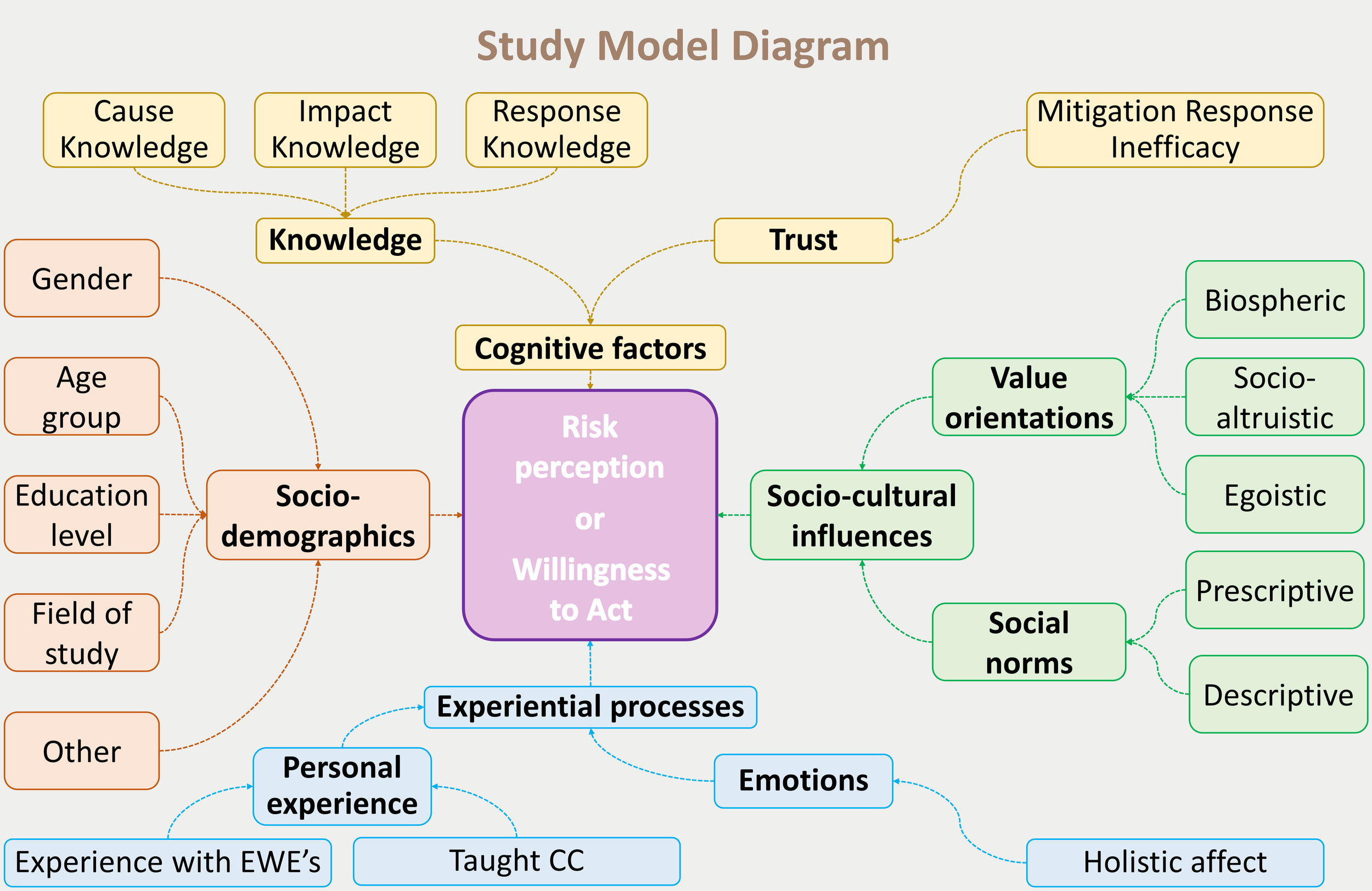Perception and Willingness Study
The "Perception and Willingness" study explored the climate change risk perception among youth located across the Red Sea Arena and their willingness to engage in the climate change mitigation behaviors in a globally comparative and comprehensive fashion. This study was conducted in Djibouti, Jordan, Lebanon, Saudi Arabia, Sudan, the United Arab Emirates, and Yemen, where it targeted high school and undergraduate degree students as an accessible and representative population of youth in the countries surrounding the Red Sea region, using an online self-administered questionnaire or, where necessary, phone interviews administered by a survey firm. In most countries, local internet access in major urban areas was adequate for the survey’s scope.
Study Model and Survey
The survey and the models were modified after the work of van der Linden [1] and Xie et al. [2]. The models used six important predictor variables for risk perception and willingness to act in addition to socio-demographic information such as age, gender, education, and education level. In brief, the models dependent and independent variables are explained below:
[1] van der Linden, Sander. (2015). The Social-Psychological Determinants of Climate Change Risk Perceptions: Towards a Comprehensive Model, Journal of Environmental Psychology, 41: 112-24.
[2] Xie, Belinda, Marilynn B. Brewer, Brett K. Hayes, Rachel I. McDonald, and Ben R. Newell. (2019). Predicting Climate Change Risk Perception and Willingness to Act, Journal of Environmental Psychology, 65.
Dependent Variables
1. Risk Perception
Risk perception was measured in three dimensions:
Personal risk: The participant’s judgment of how likely they will personally experience threats to their overall well-being as a result of climate change .
Global risk: The participant’s judgment of how serious they would rate the current impacts of climate change around the world
Societal risk: The participant’s judgment of how likely they consider that as a serious threat to their country and the natural environment.
2. Behavioral willingness
The behavioral willingness was measured in three dimensions:
Personal willingness: the participants’ willingness to engage personally in climate change mitigation behaviors.
Societal willingness: the participants’ willingness for their society to engage in climate change mitigation behaviors.
Advocacy willingness: the participants’ willingness to personally take advocacy actions.
Independent Variables
1. Knowledge
The survey measured the knowledge about climate change n three dimensions:
Knowledge about causes
Knowledge about impacts
Knowledge about mitigation responses
Each knowledge dimension was assessed using a response to randomly ordered correct and incorrect statements. The correctness of statements is based on scientific literature and the pre-approval by academic climate scientists.
2. Personal experience
The survey measured the personal experience in two dimensions:
Personal experience of extreme weather events: the frequency of personally witnessing extreme weather events.
Receiving education about climate change: either education courses or training workshops.
4. Broad value orientations
The survey measured the importance of specific values as guiding principles in their lives. The values were classified into three dimensions:
Egoistic values: The values of maximizing individual outcomes.
Socio-altruistic values: The values of caring about others.
Biospheric values: The values of caring for non-human nature and the biosphere itself.
3. Holistic affect
The holistic affect is meant to indicate a more subtle form of emotion, defined as a positive (like) or negative (dislike) evaluative feeling towards climate change.
5. Social norms
The survey measured the importance of social norms on participants' decisions in two dimensions:
Descriptive norm: describes what most and how important the others do to address climate change.
Prescriptive norm: describe the extent of social pressure on the participants' acts to address climate change.
6. Mitigation Response Inefficacy
The survey measured the participants' perception of the unnecessity and ineffectiveness of climate change mitigation actions.









